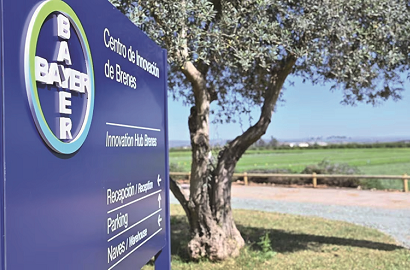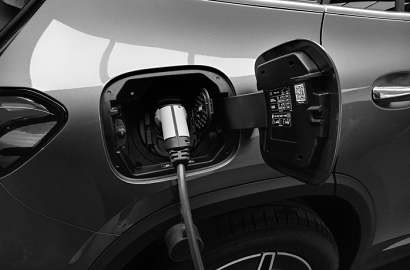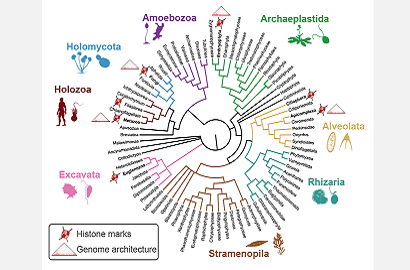Bayer turns Seville plant into benchmark for sustainable agriculture

In 2022, the company invested two million euros in the facility, which specialises in crop protection solutions
On presenting its accounts and results for Spain in 2022, Bayer has taken the opportunity to reveal the outcome of one of its most recent investments. The Brenes plant (Seville) was chosen as the venue for the event. This facility was transformed last year to turn the experimental farm into an innovative benchmark for transformation towards a more sustainable model of agriculture.
The Brenes agricultural innovation centre specialises in developing chemical and biological solutions for crop protection. The investment in its transformation is estimated to have been around two million euros. The company, better known for its pharmaceutical business but equally committed to the agri-food industry, invested a total of 29 million euros in 2022 to expand and improve its infrastructure in Spain, and another 43 million in R&D in the fields of health and food.
Natural resources
The transformational move towards more sustainable agriculture is one of Bayer's objectives in its work to meet food needs, highlighting the UN’s estimate that world population is expected to reach 10 billion by 2050. In order to progress towards this goal, the German company is on the one hand addressing the fight against climate change and, on the other hand, focusing on a more rational use of natural resources.
The R&D centres in southern Spain, including the one in Brenes, have an important role to play in this mission. It is at these facilities that the first stages of the research into crop protection products are being carried out. These activities will contribute to increasing productivity and to the safety and quality of products, as well as conserving natural resources.
A benchmark for sustainability
The Brenes experimental farm is also a benchmark for sustainability thanks to initiatives like its rainwater harvesting programme, with more than two and a half million litres of rainwater being collected each year. It also has PV solar panels for self-consumption of electricity, and it applies crop rotation and mulching techniques to help carbon sequestration, to name but a few of its research projects.
Bayer's R&D investment in 2022 grew by 8% compared to the previous year. Separating the two main business areas, while the figures remained stable in the pharmaceutical division, the agro-food division saw an increase of 19%, which accounted for all the growth in investment during this period. Sales went hand in hand with investment, as the agriculture division, called Crop Science, grew by 1.2% last year to 249 million euros, thanks to products such as maize seeds and crop protection products.
Photo: Bayer




